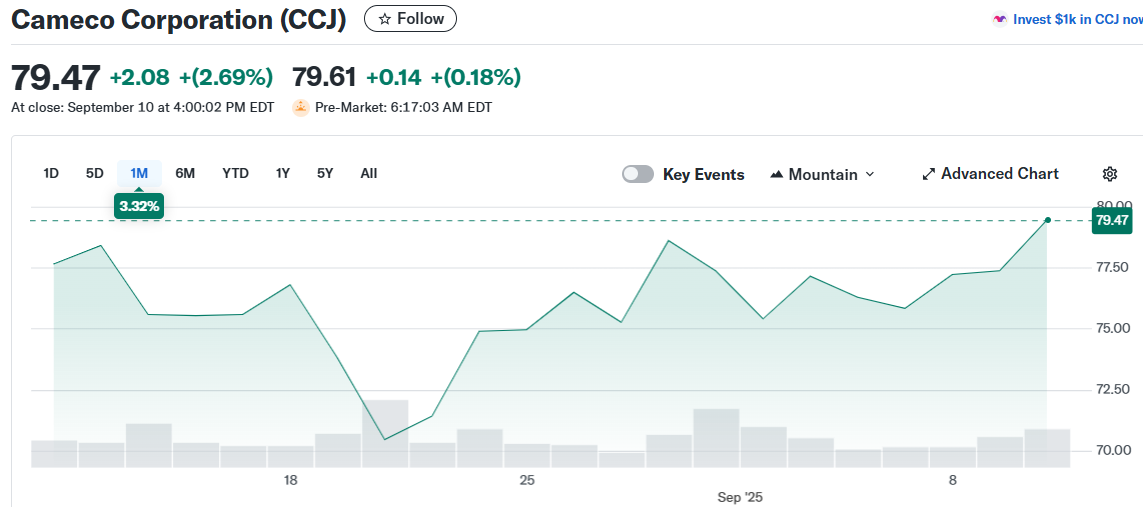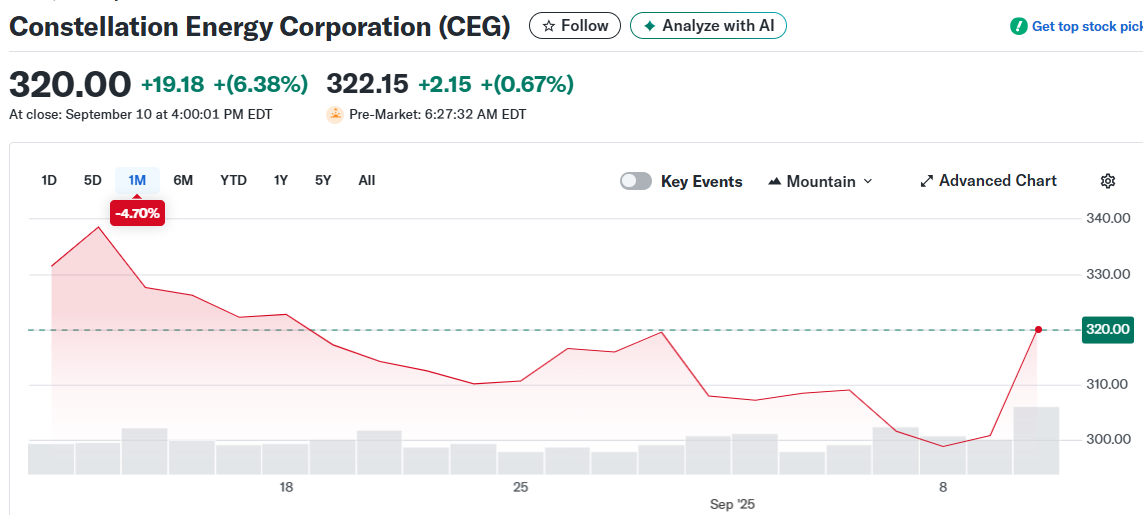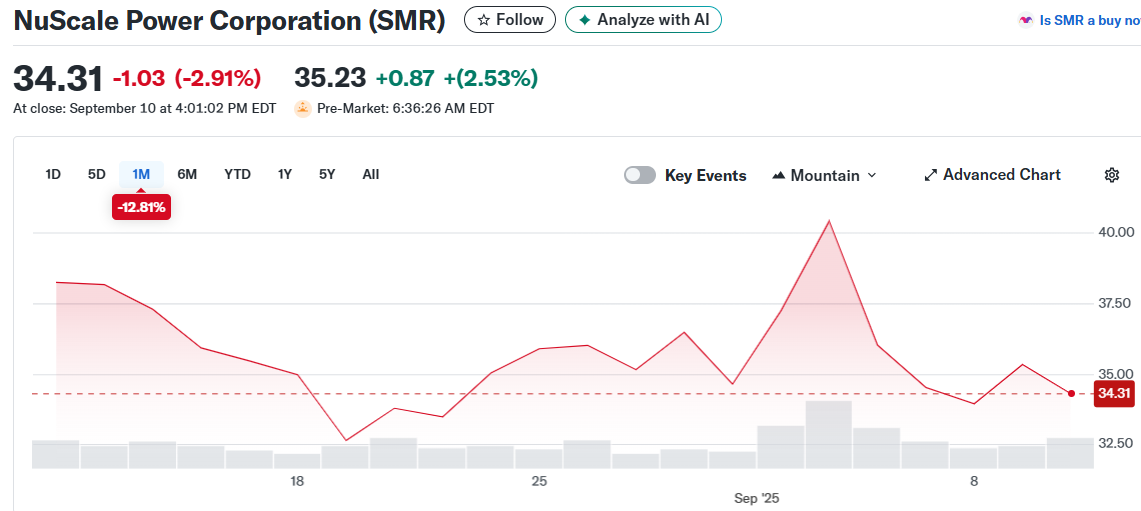TLDR
- CLSA sets $102 price target for Cameco stock, citing comprehensive nuclear value chain exposure
- Microsoft and Meta sign 20-year nuclear power agreements with Constellation Energy totaling nearly 2 gigawatts
- Cameco’s uranium segment income jumps 46% while Westinghouse stake generates $126 million profit
- NuScale Power advances small modular reactor technology with regulatory approval for two designs
- Goldman Sachs predicts countries will triple nuclear capacity by 2050 driven by AI data center demand
Nuclear energy stocks are experiencing a renaissance as major technology companies secure long-term clean power agreements and analysts upgrade key players in the sector. The shift represents a fundamental change in how tech giants approach their massive electricity needs.
Cameco Corporation leads the nuclear investment landscape after CLSA initiated coverage with an outperform rating. The equity research firm set a $102 price target for the Canadian uranium giant, representing 32% upside from current levels.

“Cameco is the most comprehensive play for the nuclear rejuvenation theme,” CLSA analyst Max Hopkins stated. The company controls operations from uranium mines in Saskatchewan and Kazakhstan to nuclear fuel fabrication through its Westinghouse Electric partnership.
The Saskatoon-based company produced over 34 million pounds of uranium in 2024, making it a dominant global supplier. Cameco’s 49% stake in Westinghouse provides exposure to 50% of the world’s nuclear reactors and 25% of the nuclear fuel fabrication market.
Tech Companies Drive Nuclear Demand
Technology companies are becoming major nuclear power customers as artificial intelligence and data centers require unprecedented amounts of clean electricity. Microsoft signed a groundbreaking 20-year agreement with Constellation Energy to purchase all 835 megawatts from Three Mile Island Unit 1 when it restarts in 2028.

Meta Platforms followed with an even larger commitment, securing 1.1 gigawatts from Constellation’s Clinton Clean Energy Center starting in June 2027. These deals represent billions of dollars in guaranteed revenue for nuclear operators.
Constellation Energy operates America’s largest nuclear fleet and expects adjusted operating earnings to grow over 13% annually through 2030. The company’s planned $16.4 billion acquisition of Calpine will boost earnings per share by 20% next year.
Small Modular Reactors Advance
NuScale Power represents the future of nuclear technology with factory-built small modular reactors. The company received U.S. Nuclear Regulatory Commission approval for two SMR designs, providing a competitive advantage in the emerging market.

These smaller reactors offer advantages over traditional nuclear plants including lower costs, faster construction times, and improved safety features. NuScale’s reactors can be transported to remote locations and placed closer to population centers.
Romanian utility RoPower is evaluating six NuScale reactors for a combined facility, with a final decision expected within twelve months. This potential first sale could validate the commercial viability of small modular reactor technology.
Financial Performance Strengthens
Cameco delivered strong second-quarter results with uranium segment pre-tax income rising 46% on higher volumes and prices. The company’s Westinghouse investment generated $126 million in pre-tax profits compared to a $47 million loss the previous year.
Westinghouse completed its first fuel reload deliveries to Czech Republic nuclear plants, establishing recurring revenue streams. Cameco has secured uranium delivery commitments averaging 28 million pounds annually through 2029.
Goldman Sachs projects many countries will triple their nuclear power capacity by 2050 as electricity demand from artificial intelligence applications accelerates. This long-term trend supports sustained growth for nuclear energy companies across the value chain.





